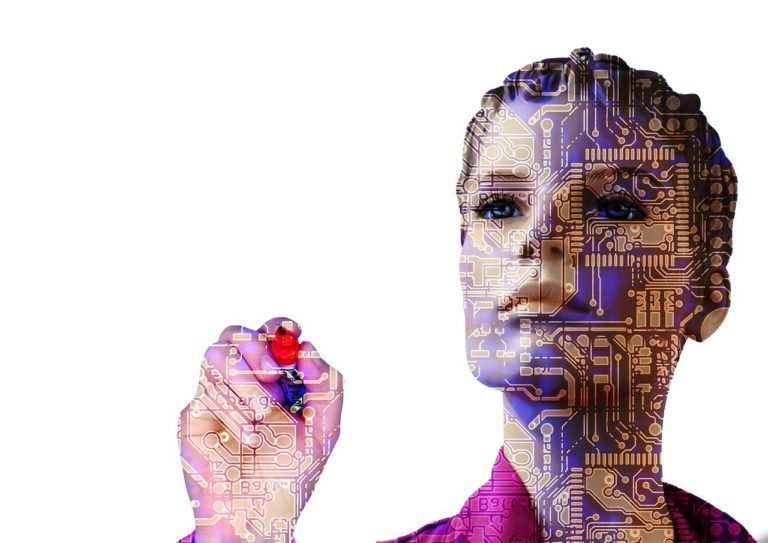Singapore, a global hub for innovation and technology, is making significant strides in adopting and leveraging Web3 technologies. Web3, often referred to as the third generation of the internet, is characterised by decentralisation, blockchain, and enhanced user control. In Singapore, this digital evolution is giving rise to a new wave of businesses, reshaping the fintech and crypto landscape, and prompting discussions about workforce and immigration impacts.
Web3 Businesses in Singapore
Web3 businesses in Singapore span a diverse range of industries, with a particular focus on finance, supply chain, healthcare, and even charity. Decentralised Finance (DeFi) platforms, blockchain-based supply chain management systems, and Non-Fungible Token (NFT) marketplaces are gaining prominence.
In the realm of finance, Singapore has become a breeding ground for DeFi startups. These companies utilise blockchain technology to create decentralised lending and borrowing platforms, automated trading systems, and decentralised exchanges. The advantage of these platforms lies in their ability to operate without traditional intermediaries, offering users increased transparency, lower fees, and enhanced security.
Benefits of Web3 Technology for Businesses
Switching to or adopting Web3 technologies can bring numerous benefits to businesses across various industries. Here are some key advantages:
-
Decentralisation and Increased Security
Web3 technologies, particularly blockchain, operate on decentralised networks. This means that data is distributed across a network of computers rather than being stored in a central location. This decentralisation enhances security by reducing the risk of a single point of failure and making it more challenging for malicious actors to compromise the system.
-
Transparency and Trust
Blockchain, a core component of Web3, is a transparent and immutable ledger. Transactions recorded on the blockchain are visible to all participants in the network, fostering trust among users. This transparency can be particularly valuable in industries where accountability and trust are critical, such as supply chain management and finance.
-
Smart Contracts for Automation
Web3 introduces the concept of smart contracts, self-executing contracts with the terms of the agreement directly written into code. These contracts automatically execute actions when predefined conditions are met. This automation reduces the need for intermediaries, streamlines processes, and minimises the potential for errors or disputes.
-
Cost Reduction
By eliminating intermediaries and automating processes, businesses can experience significant cost reductions. Web3 technologies, such as blockchain-based solutions, can reduce transaction fees, operational costs, and the need for manual verification and reconciliation.
-
Global Accessibility and Financial Inclusion
Web3 technologies have the potential to extend financial services to underserved populations globally. Decentralised finance (DeFi) platforms, enabled by Web3, allow individuals to access financial services without traditional banking infrastructure. This fosters financial inclusion by providing services to those who are excluded from the traditional banking system.
-
Improved Data Ownership and Privacy
Web3 technologies empower users with greater control over their data. With decentralised identity solutions, individuals can have ownership of their personal information and grant access to specific parties on a need-to-know basis. This enhances privacy and gives users more say in how their data is utilised.
-
Innovative Business Models
Web3 opens the door to innovative business models, such as tokenization and decentralised applications (DApps). Tokenization allows assets to be represented digitally on a blockchain, enabling fractional ownership and new investment opportunities. DApps, built on blockchain platforms, provide new ways for businesses to engage with customers and partners.
-
Scalability and Interoperability
Some Web3 technologies are designed to be highly scalable and interoperable. This allows businesses to seamlessly integrate and communicate with different platforms and networks. Scalability ensures that the technology can handle a growing volume of transactions without compromising performance.
-
Sustainability and Environmental Impact
Certain Web3 technologies, especially those moving towards proof-of-stake consensus mechanisms, are more energy-efficient compared to traditional proof-of-work systems. This shift can contribute to more sustainable business practices, addressing concerns about the environmental impact of blockchain technologies.
-
Competitive Advantage and Market Differentiation
Early adoption of Web3 technologies can provide businesses with a competitive advantage. Embracing innovation and demonstrating a commitment to cutting-edge technologies can enhance a company’s reputation and attract tech-savvy customers.
Impact on the Greater Digital Economy
The adoption of Web3 technologies is fundamentally transforming the digital economy in Singapore. Fintech, in particular, is experiencing a paradigm shift as decentralised technologies enable faster and more secure transactions. Blockchain-based smart contracts are automating processes and reducing the need for intermediaries, leading to increased efficiency and cost savings.
The emergence of crypto and blockchain technologies is also positioning Singapore as a key player in the global digital economy. The country’s supportive regulatory environment has attracted numerous blockchain and cryptocurrency companies, fostering innovation and growth in the sector.
Workforce Challenges and Opportunities
As Singapore embraces Web3 technologies, the workforce is experiencing both challenges and opportunities. The demand for professionals with expertise in blockchain development, smart contract programming, and cryptography has surged. This has led to a skills gap, prompting educational institutions and training programs to adapt to the evolving needs of the industry.
On the flip side, the traditional finance sector may witness some disruptions as decentralised financial services gain traction. The workforce in traditional banking and financial institutions may need to upskill to remain relevant in the changing landscape.
Immigration Impacts
The growing importance of Web3 technologies in Singapore is attracting talent from around the world. The city-state’s reputation as a global tech hub, coupled with its progressive approach to blockchain and crypto regulations, makes it an attractive destination for skilled professionals in the field.
However, as the demand for specialised talent increases, Singapore’s immigration policies need to adapt to the influx of these skilled workers. One of the government’s initiatives is the introduction of the Tech Pass, a Work Pass launched to attract established tech entrepreneurs, leaders or technical experts globally to perform frontier and disruptive innovations in Singapore. Striking a balance between nurturing local talent and welcoming global expertise will be crucial for sustaining the momentum of Web3 innovation in the country.
This would eventually trickle down to the highly coveted Singapore Permanent Residency (PR) application. Regarded as the transition phase towards Singapore Citizenship for foreigners who have been working, living, and contributing to Singapore, the Singapore PR allows foreigners a glimpse of being a Singaporean. This includes access and subsidies in internationally-rated public housing, healthcare, and education. With Singapore’s stance on a skilled and talented workforce, a higher percentage of foreigners with specialised skills such as web3 technologies getting their PR approvals is a possibility.
Embracing Web3 Technologies in Singapore
Web3 technologies are ushering in a new era of digital transformation in Singapore. The rise of decentralised finance, blockchain-based applications, and NFT platforms is reshaping the business landscape and propelling the nation to the forefront of the global digital economy. As the workforce adapts to the demands of this evolving industry and immigration policies adjust to accommodate global talent, Singapore stands poised to reap the benefits of embracing Web3 technologies.







